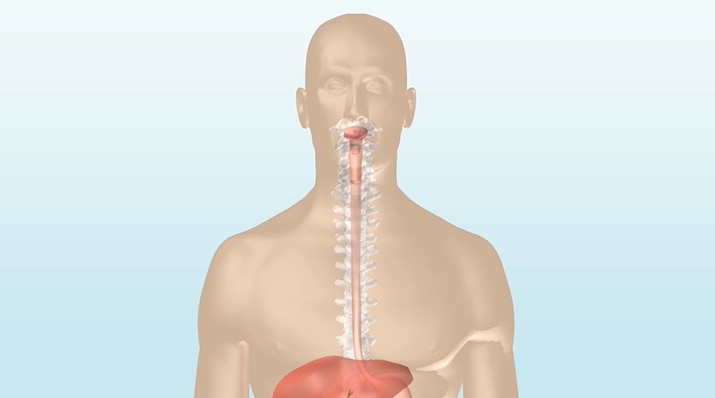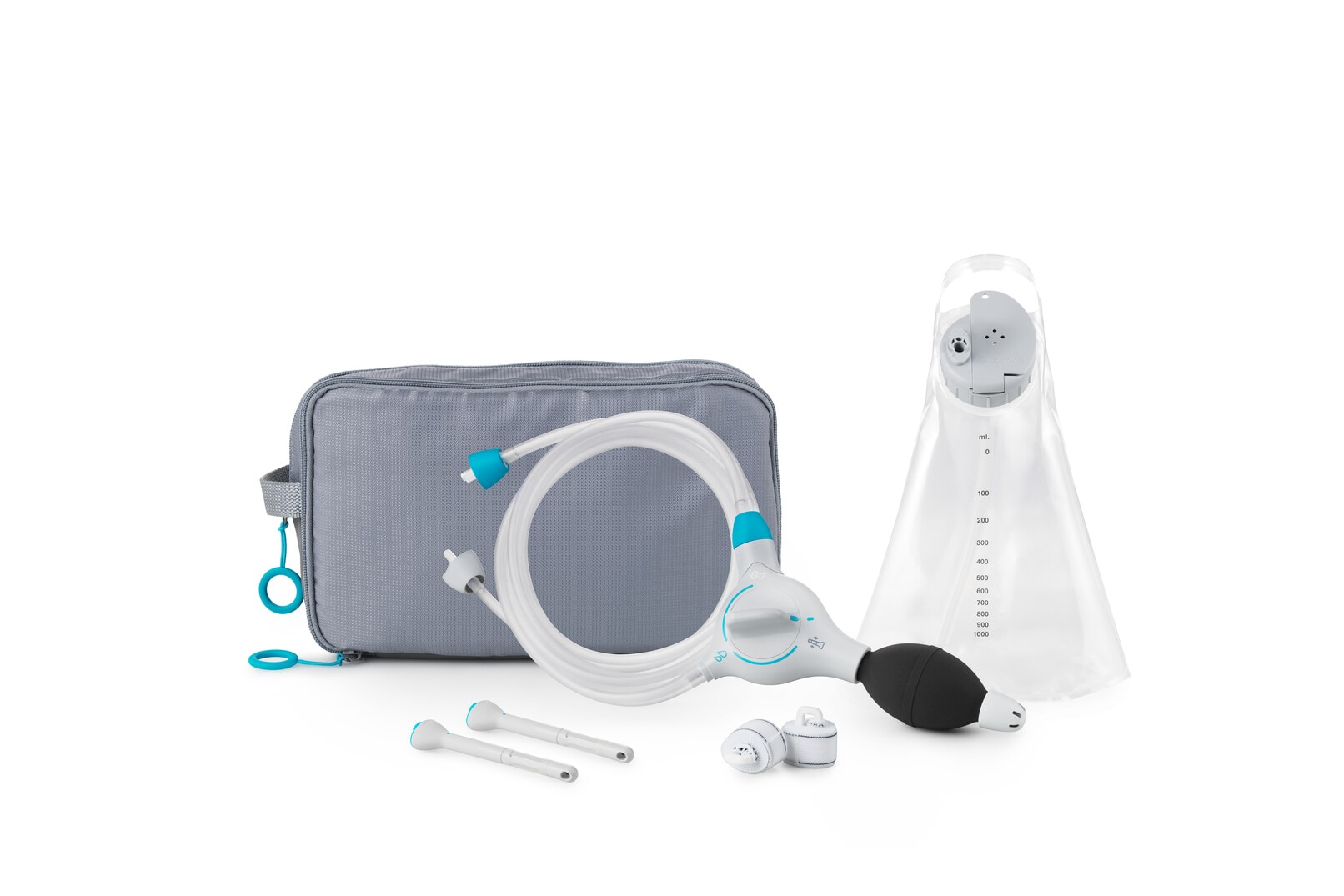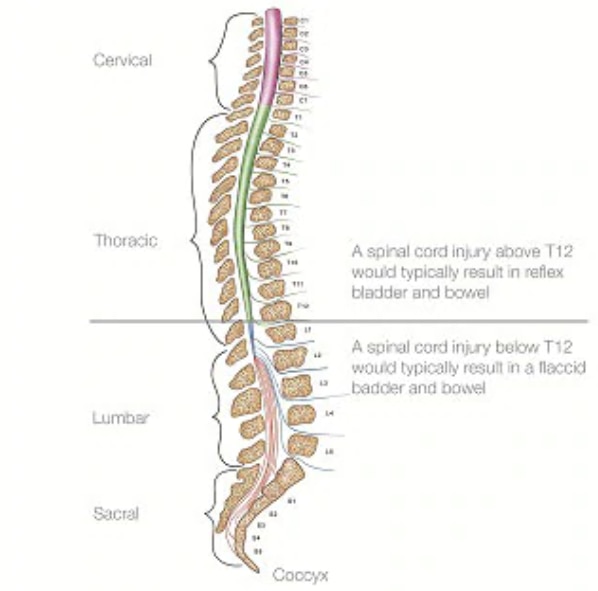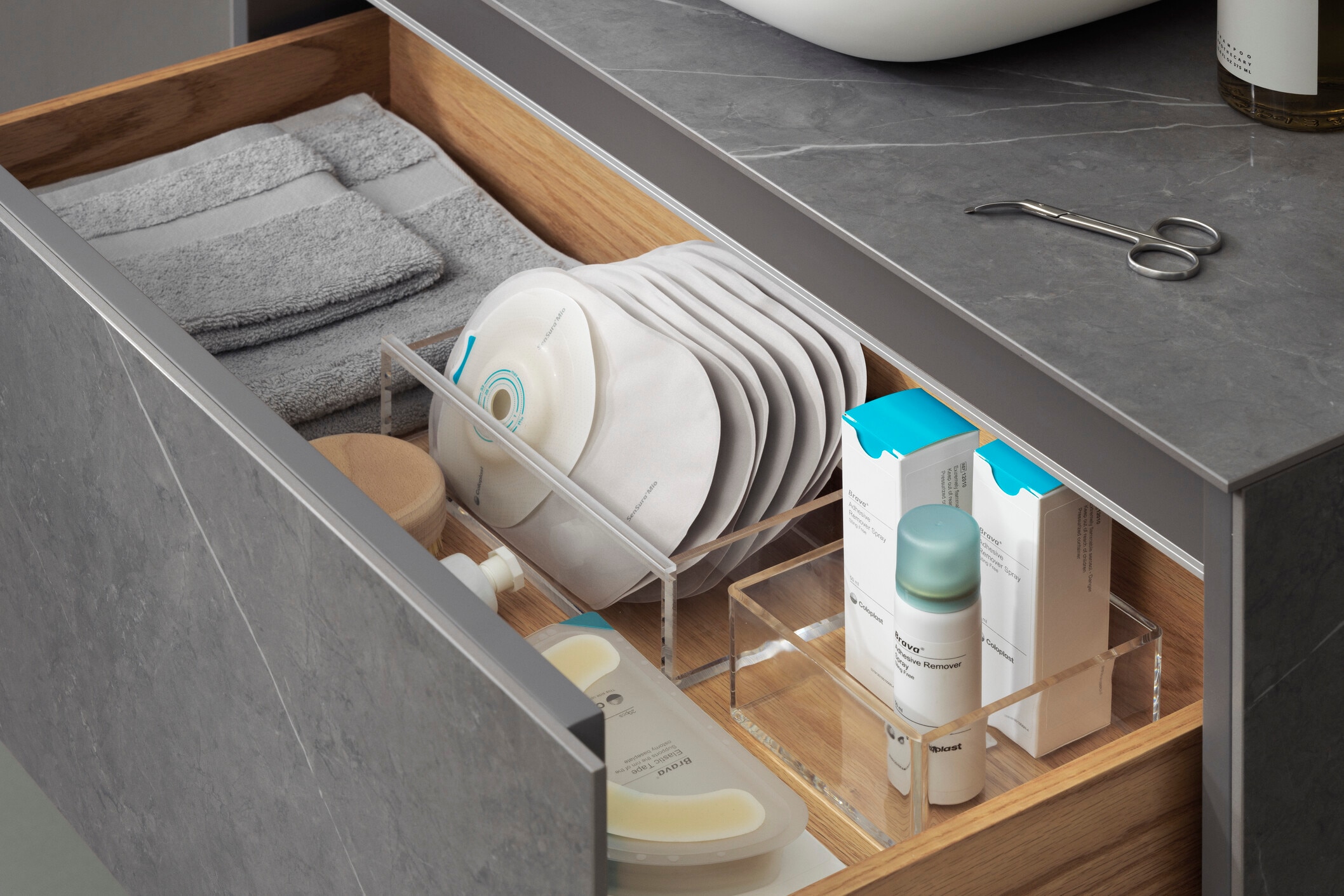Useful apps for your patient
WheelMate - Find accessible toilets and parking near you
Finding clean, accessible restrooms and parking can be a challenge. The WheelMate app is a simple way to find restrooms and parking spaces on the go. Whether you’re local or traveling, WheelMate helps you plan your day. Learn more below.
Frequently asked questions about bowel irrigation
This FAQ is intended as a guide to commonly asked questions. Please always consult your healthcare professional regarding bowel irrigation.
For more information, watch the video about getting started with Peristeen.
What is bowel irrigation?
Bowel irrigation is where water is introduced into the bowel using a rectal catheter. The water stimulates the bowel and flushes out the stool, leaving the lower half of the bowel empty. It is important to do it regularly to prevent constipation and the risk of bowel accidents. Read more about Coloplast’s bowel irrigation system, Peristeen®.
Where can I get Peristeen®?
In order to use Peristeen, you need to get a prescription from your GP or nurse. You must also always consult an experienced specialist healthcare professional before starting up the irrigation procedure and you must receive thorough instruction from a healthcare professional before using this product.
How often should I irrigate?
Most people start with irrigating every day. It takes approximately 3 months to establish a regular routine. Once you have an established routine, irrigating every other day may work well. With time and practice you will find out what works best for you. What is important, is to remember to irrigate regularly to prevent constipation and minimise the risk of bowel accidents. Always ask your doctor or nurse for advice.
What time of the day is best for irrigating?
Try to get into a routine where you irrigate around the same time of the day. Eating and drinking helps the bowel’s natural movement, so about 30 minutes after a meal is a good time. But do not be afraid to change the routine slightly to suit your day-to-day routine.
Can I travel with the irrigation equipment?
Yes – remember to bring your irrigation system along with lots of disposable catheters as they may not sell them everywhere. If you are going to use the system abroad, use bottled or cooled boiled water in places where the tap water is not safe to drink. Remember in different time zones your body may take a while to get used to a new routine. You may also be eating different types of food, which can affect the bowels.
What should I do if I leak between irrigations?
If you experience bowel leakage between irrigations, it may be due to insufficient emptying of your bowel due to constipation or hard stool. Alternatively, you may be using too much water during irrigation. Contact your doctor or nurse to help you adapt to your bowel plan. A Peristeen® Anal Plug may help if the problem persists.
Video guide for your patient

How the bowel works
The bowel is divided into the small intestine and the large intestine (colon, rectum and anus). The main function of the small intestine is to absorb nutrients released from the food digested in the stomach. The large intestine absorbs water from food and forms semi-solid and solid food waste into stools, which are eliminated from the body through the anus. Waste product is moved along the digestive system by a wave of involuntary contractions (peristalsis).

Bowel irrigation video guides
Used routinely, daily or every other day, Peristeen can help reduce the physical discomfort and mental worry of bowel leakage and constipation, making it easier to take part in social activities, go to work or travel.
A guide to test bowel symptoms on your patient

Bowel Symptoms
Bowel symptoms can vary depending on the underlying cause. Read about the most common bowel problems people are experiencing and test your patients bowel symptoms.
Find evidence on neurogenic bowel disorder

What is neurogenic bowel disorder?
Neurogenic bowel can be described as slow movement of stools, constipation, bowel leakage, and difficulty emptying the bowel. Control of the external anal sphincter muscles may also be disrupted, increasing the risk of bowel accidents.
Coloplast Charter for Healthcare Professionals
Giving you access to a team of specialists who are dedicated to work alongside your Coloplast Territory Manager to ensure you get the best service possible.




